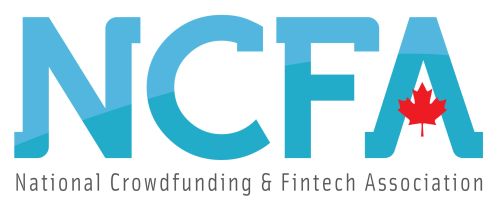AI News | Feb 29, 2024

 Image: Freepik
Image: FreepikKlarna’s AI-Chatbot Does the Work of 700 Humans, Eyes $20B IPO
Klarna has embraced AI in a significant way, leveraging OpenAI’s technologies to enhance its customer service operations. The company’s AI-powered chatbot is reported to do the work of 700 human employees, handling inquiries for its 150 million customers. This adoption of AI has fundamentally altered Klarna’s hiring strategy, focusing more on engineering roles while reducing the need for traditional customer service positions.
- The chatbot has improved efficiency, reducing repeat inquiries by 25% and shortening average conversation times from 11 minutes to just two minutes.
- Despite the reduction in human customer service roles, Klarna’s CEO Sebastian Siemiatkowski emphasized the benefits of AI in providing superior customer experiences, more interesting challenges for employees, and better returns for investors.
- Klarna’s workforce was reduced to 4,201 by the end of 2023, from 5,441 a year earlier, partly due to these technological advancements.
See: Klarna’s New $7.99 Monthly Subscription Plan Pre-IPO
- Klarna’s AI initiatives have positioned the company as a leader in adopting and applying AI technologies in the fintech sector. The company’s partnership with OpenAI has been particularly fruitful, making Klarna a “favorite guinea pig” for testing new AI applications.
- Klarna’s focus on AI and technology has not only impacted its workforce composition but also its operational efficiency and customer service quality, setting a precedent for other companies in the industry.
Chatbot Challenges
Financial Performance and IPO Plans
Klarna is actively preparing for an Initial Public Offering (IPO) after reporting its fifth consecutive annual net loss, signaling a strategic move towards public listing within the current financial landscape. The company’s strategic shift towards AI and technology-driven operations is seen as a move to make itself more nimble and competitive, especially as it eyes a potential IPO in the near future.
- Klarna reported a fifth consecutive annual loss, with a net loss of SKr2.5 billion ($241 million) for 2023, which is narrower than its SKr10.4 billion loss in 2022.
- The company saw a 22% increase in revenues, reaching SKr23.5 billion. This financial performance comes as Klarna continues its expansion plans and considers a potential initial public offering (IPO) this year.
- The company’s valuation has seen fluctuations, with a significant drop from $46 billion in June 2021 to $6.7 billion a little over 12 months later, largely due to higher interest rates impacting the fintech sector.
See: Klarna’s Meteoric Rise in the Canadian Financial Ecosystem
- Despite these challenges, Klarna is reportedly in talks with several U.S. banks about listing through an IPO as early as the third quarter of 2024, seeking a valuation of $20 billion.
- Klarna’s U.S. headquarters in Columbus has been a significant part of its operations since 2015, indicating the importance of the U.S. market in its global strategy and potentially influencing its decision to pursue a U.S. IPO.
- Factors such as potential interest rate declines and the U.S. Presidential Election in November could influence the IPO landscape.
Outlook
Klarna’s outlook is one of cautious optimism. The company’s AI-driven efficiencies are not just about cost savings; they represent a significant shift in how customer service and operational tasks are managed, setting a new standard for the industry. Klarna’s ability to streamline operations and reduce human error through AI, improving customer experience while lowering operational costs, could serve as a model for other fintech companies.
See: Amazon & Affirm’s BNPL Service Aids Small Business Growth
The fintech sector is highly competitive, with regulatory pressures and market dynamics constantly changing. Klarna’s reliance on AI and its ambitious IPO plans will be closely watched by investors and industry observers alike, serving as a barometer for the company’s long-term viability and the broader acceptance of AI in financial services.

 The National Crowdfunding & Fintech Association (NCFA Canada) is a financial innovation ecosystem that provides education, market intelligence, industry stewardship, networking and funding opportunities and services to thousands of community members and works closely with industry, government, partners and affiliates to create a vibrant and innovative fintech and funding industry in Canada. Decentralized and distributed, NCFA is engaged with global stakeholders and helps incubate projects and investment in fintech, alternative finance, crowdfunding, peer-to-peer finance, payments, digital assets and tokens, artificial intelligence, blockchain, cryptocurrency, regtech, and insurtech sectors. Join Canada’s Fintech & Funding Community today FREE! Or become a contributing member and get perks. For more information, please visit: www.ncfacanada.org
The National Crowdfunding & Fintech Association (NCFA Canada) is a financial innovation ecosystem that provides education, market intelligence, industry stewardship, networking and funding opportunities and services to thousands of community members and works closely with industry, government, partners and affiliates to create a vibrant and innovative fintech and funding industry in Canada. Decentralized and distributed, NCFA is engaged with global stakeholders and helps incubate projects and investment in fintech, alternative finance, crowdfunding, peer-to-peer finance, payments, digital assets and tokens, artificial intelligence, blockchain, cryptocurrency, regtech, and insurtech sectors. Join Canada’s Fintech & Funding Community today FREE! Or become a contributing member and get perks. For more information, please visit: www.ncfacanada.org
Related Posts
- SEO Powered Content & PR Distribution. Get Amplified Today.
- PlatoData.Network Vertical Generative Ai. Empower Yourself. Access Here.
- PlatoAiStream. Web3 Intelligence. Knowledge Amplified. Access Here.
- PlatoESG. Carbon, CleanTech, Energy, Environment, Solar, Waste Management. Access Here.
- PlatoHealth. Biotech and Clinical Trials Intelligence. Access Here.
- Source: https://ncfacanada.org/klarnas-ai-handles-700-jobs-targets-20b-ipo/
- :has
- :is
- :not
- :where
- $6.7 billion
- 02
- 11
- 12
- 12 months
- 150
- 200
- 2015
- 2018
- 2021
- 2022
- 2023
- 2024
- 21
- 29
- 300
- 33
- 4
- 5
- 62
- 7
- 700
- a
- ability
- About
- acceptance
- accuracy
- accurately
- actively
- actual
- adding
- Adopting
- Adoption
- advancements
- affiliates
- After
- AI
- AI chatbot
- AI-powered
- aids
- airline
- alike
- All
- also
- altered
- alternative
- alternative finance
- Amazon
- ambitious
- among
- amount
- amusement
- an
- and
- annual
- Another
- applications
- Apply
- Applying
- ARE
- artificial
- artificial intelligence
- AS
- Assets
- Assistant
- associated
- attempt
- average
- awarded
- Banks
- BE
- become
- been
- benefits
- Better
- Billion
- blockchain
- BNPL
- Bot
- both
- bots
- broader
- business
- but
- by
- cache
- Canada
- Canadian
- case
- cases
- cautious
- ceo
- challenges
- changing
- chatbot
- claims
- closely
- comes
- community
- Companies
- company
- competitive
- composition
- consecutive
- considers
- constantly
- continues
- contrary
- Conversation
- Cost
- cost savings
- Costs
- could
- Court
- Cream
- create
- Crowdfunding
- cryptocurrency
- Cup
- Current
- customer
- customer experience
- Customer Service
- Customers
- Dark
- decentralized
- decision
- Declines
- deployed
- deploying
- Despite
- digital
- Digital Assets
- distributed
- do
- documented
- does
- Drop
- due
- dynamics
- Earlier
- Early
- ecosystem
- Education
- efficiencies
- efficiency
- Election
- embraced
- emphasized
- employees
- end
- engaged
- Engineering
- enhance
- ensuring
- error
- especially
- Ether (ETH)
- example
- excessive
- expansion
- experience
- Experiences
- Eyes
- faced
- Failed
- favor
- Favorite
- Feb
- Fees
- fifth
- finance
- financial
- financial innovation
- financial performance
- financial services
- fintech
- Fintech Companies
- First
- fluctuations
- Focus
- focusing
- For
- Forbes
- four
- from
- fruitful
- frustration
- FT
- fully
- fundamentally
- funding
- funding opportunities
- future
- get
- Global
- Government
- Growth
- Handles
- Handling
- Have
- Headquarters
- helps
- her
- High
- higher
- Highlight
- highly
- Hiring
- How
- http
- HTTPS
- human
- Humans
- Humor
- ICE
- ice cream
- image
- impacted
- impacting
- importance
- improved
- improving
- in
- inability
- Increase
- indicating
- industry
- influence
- influencing
- information
- initial
- initial public offering
- initial public offering (IPO)
- initiatives
- Innovation
- innovative
- Inquiries
- instances
- instead
- Insurtech
- Integrating
- Intelligence
- interest
- INTEREST RATE
- Interest Rates
- interesting
- into
- investment
- Investors
- involved
- IPO
- issue
- IT
- ITS
- itself
- Jan
- Jobs
- jpg
- june
- just
- Klarna
- landscape
- large
- largely
- later
- leader
- leading
- Led
- Legal
- leveraging
- light
- limitations
- listing
- little
- long-term
- loss
- lowering
- make
- Making
- managed
- Market
- max-width
- MCDONALD
- meals
- member
- Members
- meteoric
- million
- minutes
- misleading
- model
- monthly
- monthly subscription
- months
- more
- move
- Near
- Need
- net
- networking
- New
- news
- nimble
- notable
- November
- numerous
- observers
- of
- offering
- on
- ONE
- only
- OpenAI
- operational
- Operations
- opportunities
- Optimism
- or
- order
- orders
- Other
- out
- Outlook
- over
- packets
- part
- particularly
- partners
- payments
- PayPal
- peer to peer
- perfectly
- performance
- perks
- person
- pioneer
- plan
- plans
- plato
- Plato Data Intelligence
- PlatoData
- please
- policy
- positioned
- potential
- potentially
- pre-IPO
- Precedent
- preparing
- presidential
- presidential election
- pressures
- process
- projects
- promise
- provided
- provides
- providing
- public
- public listing
- pursue
- quality
- Quarter
- rasa
- Rate
- Rates
- reaching
- reduce
- Reduced
- reduction
- Regtech
- regulatory
- reliability
- reliance
- repeat
- repercussions
- Reported
- reportedly
- Reporting
- represent
- requests
- resulted
- returns
- revenues
- Rise
- risks
- roles
- ruling
- s
- Savings
- saw
- sector
- Sectors
- seeking
- seen
- serve
- service
- Services
- serving
- setting
- several
- shift
- significant
- since
- small
- small business
- stakeholders
- standard
- Stewardship
- Strategic
- Strategy
- streamline
- subscription
- such
- sweet
- Talks
- targets
- tasks
- Tea
- technological
- Technologies
- Technology
- technology's
- Testing
- than
- that
- The
- the information
- These
- they
- Third
- this
- this year
- thousands
- Through
- times
- to
- today
- Tokens
- totaling
- towards
- traditional
- two
- u.s.
- understand
- users
- using
- Valuation
- Ventures
- viability
- vibrant
- Visit
- Voice
- was
- Water
- Way..
- when
- which
- while
- WHO
- will
- with
- within
- without
- Work
- work out
- Workforce
- works
- year
- zephyrnet












